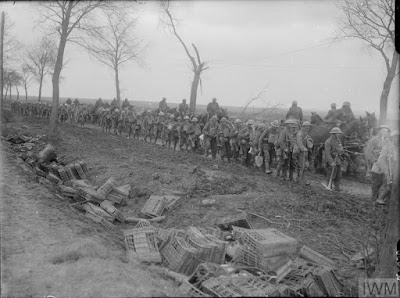 |
| Le lac de Gruyère by Ludovic Péron (Creative Commons 3.0) |
On the evening of Sunday 25 February, Connie is writing to her dad while no one else is in the salon. 'I feel very clean and comfortable, and can imagine you saying "what do you think to a bottle of champagne", it's the kind of after a good days shoot feel you know?'
At church that morning Captain Reynolds and Captain Peak read the Epistle and Gospel. They sung a lot of hymns that were not exactly appropriate to the church calendar, 'it is a case of "do the men know this one", if so we have it, and it is a treat to hear the singing.'
Directly after church they changed into strong boots and puttees, short skirts and jerseys, the boys carried cameras and sticks and went to climb Mont Cray. They stopped to eat lunch and take some snap shots 'I'll send some on later when they get developed'. Climbing on through the wood, some of the places were thigh deep in snow, and some places no snow at all. 'It was so hot we had to sling our jerseys round our waists, and neither Muriel or I wore hats.'
Mrs Leybourne went more than halfway up, then waited for them at a little cow shed. Connie tells how the last part of the climb was very stiff. They dug their boots into the soft snow and scrambled up the last steep part. 'The view from the top is certainly the most magnificent and extensive that I have ever seen. Mont Blanc and the Jung Frau looked quite close, and yet Mont Blanc would be 50 miles away, and in France… The range of peaks was marvellous with the sun on them, and the shadows sharp and clear. And a sapphire blue sky behind without a single cloud’, and they could see Gruyere and Bulle down in the opposite valley. 'I feel very pleased with myself that I really managed to get to the top, I so easily give in when there is hard work to be done'.
 |
| Grandes Jorasses and Mont Blanc by Björn S... (Creative Commons Licence 2.0) |
Connie next gives us a clue to Angus's injury; we know only that he spent six months in Hospital while a prisoner of war in Germany. 'The coming down was a most painful business for the legs especially in the deep snow. We tumbled all over the show. Angus felt the coming down very much, his ankle would not bear the strain, but he was saying last year when he went up he was using two sticks, so that is an improvement.'
The mention of Angus prompts her to ask her dad, 'By the way. Is there no possibility of Angus being able to take his written exam out here, there seem to be ever so many officers who are taking various exams out here, it will be difficult for him to study here but at any rate it would be studying with some definite object. I wish you would make some enquiries and let me know, or better still write to Angus.'
By this time the British internees have been in Switzerland for eight months and workshops and training courses have been established, and instructors brought from home. Lieutenant Colonel Picot writes that Captain Reynolds, (the one who read the Epistle), has charge of the motor engineering workshop in Chateau d'Oex, and it is very successful. In January 1917, thirteen British internees were inscribed on the rolls of Swiss Universities. Picot states that before the war, the British Army resisted the idea that they should provide training for men in trades that would be useful to them in civilian life; being professional soldiers, the men themselves did not require it and the cost had been judged prohibitive.
As the internees' health and mobility began to improve, work was at first voluntary. Later it became compulsory and the men were allocated to different categories according to their abilities. They worked varying amounts of hours and were paid an allowance; four to five hours of work a day in the workshops paid 1 franc a day on average. Many private businesses such as Nestle in Switzerland, and Auto-car of London donated expertise and equipment. As the men regained their strength and acquired the necessary skills, they were able to work in the Swiss factories and businesses, and were paid at the same rate as the Swiss workers.
Connie’s dad has sent the information she needed about the bank and she has written another cheque out for £10.00. She thanks her mother also, for the transfer of the DLI Crest. Mrs Paton mentioned in a letter, a cutting she had sent to Connie but it didn't get through, 'What was the cutting about? Was it the meeting you mention at which Mr Leith, Mr Gratton Doyle and Ernest spoke? What was it all about?'
It would be very interesting to know what that meeting was about, but quite understandably, this correspondence is, in parts, rather like the famous cheese from Gruyere.
Connie has finished dinner, she is feeling pleasantly tired and so says goodnight:
'Heaps of love and kisses to you both. I thought of you both on the 22nd [wedding anniversary], strange coincidence that I should get my engagement ring on that day.
Love from your bairn Connie.'
Congratulations are definitely in order.





